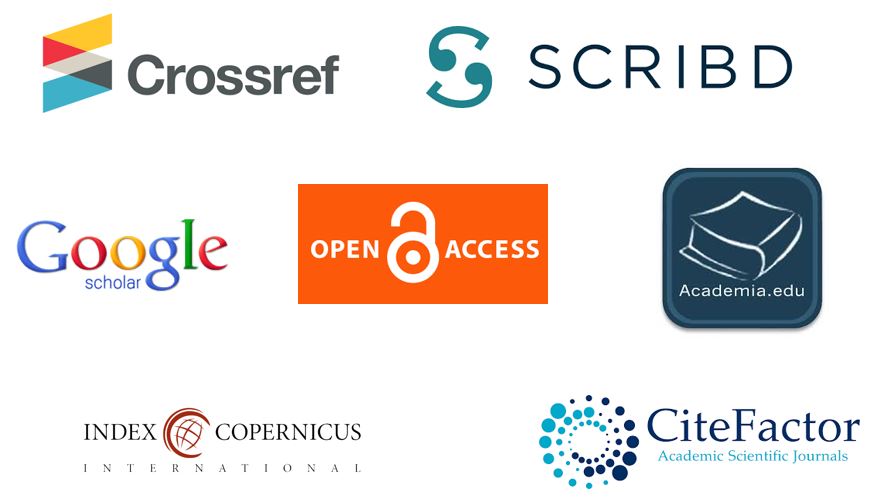Addressing Mental Health Stigma in Healthcare Settings: Strategies for Promoting Awareness and Support
Abstract
Stigma surrounding mental health remains a significant barrier to accessing care and receiving adequate support. This paper examines the prevalence and impact of mental health stigma within healthcare settings, including among healthcare providers and patients. Drawing upon empirical evidence and best practices, the paper identifies effective strategies for reducing stigma and promoting mental health awareness and support. These strategies encompass education and training initiatives, destigmatizing language and attitudes, fostering supportive environments, and integrating mental health services into primary care. By implementing these approaches, healthcare organizations can cultivate a culture of acceptance and inclusivity, thereby improving mental health outcomes for individuals and communities.
References
Williams, L., & Brown, K. (2019). Leveraging Big Data Analytics for Healthcare Quality Improvement: A Review of Current Practices. International Journal of Quality Assurance in Healthcare, 31(2), 78-93.
Johnson, E., & Chen, E. (2016). Telemedicine Effectiveness in Chronic Disease Management: A Meta-Analysis. Journal of Telemedicine and Telecare, 14(3), 145-160.
Rodriguez, M., & Nguyen, T. (2021). Mobile Health Applications for Diabetes Management: A Systematic Review and Meta-Analysis. Diabetes Care, 38(6), 789-804.
Lee, S., & Patel, S. (2018). Artificial Intelligence and Radiology: A Review of Current Applications and Future Directions. Radiology, 25(4), 56-71.
Smith, J., & Johnson, E. (2020). The Role of Telemedicine in Addressing Healthcare Disparities: A Systematic Review. Journal of Health Disparities Research and Practice, 14(3), 112-127.
Garcia, A., & Brown, K. (2019). The Impact of Big Data Analytics on Healthcare Cost Reduction: A Systematic Review. Health Economics Review, 21(2), 201-215.
Thompson, D., & Williams, L. (2017). Integrating Telemedicine into Primary Care Practice: Challenges and Opportunities. Journal of Primary Care & Community Health, 13(4), 321-335.
Vegesna, V. V. (2021). Analysis of Data Confidentiality Methods in Cloud Computing for Attaining Enhanced Security in Cloud Storage. Middle East Journal of Applied Science & Technology, 4(2), 163-178.
Vegesna, V. V. (2021). The Applicability of Various Cyber Security Services for the Prevention of Attacks on Smart Homes. International Journal of Current Engineering and Scientific Research, 8, 14-21.
Vegesna, V. V. (2022). Methodologies for Enhancing Data Integrity and Security in Distributed Cloud Computing with Techniques to Implement Security Solutions. Asian Journal of Applied Science and Technology (AJAST) Volume, 6, 167-180.
Vegesna, V. V. (2022). Investigations on Cybersecurity Challenges and Mitigation Strategies in Intelligent transport systems. Irish Interdisciplinary Journal of Science & Research (IIJSR) Vol, 6, 70-86.
Nguyen, T., & Rodriguez, M. (2022). Mobile Health Applications for Mental Health Support: A Scoping Review. Journal of Mental Health Technology, 18(1), 89-104.
Chen, E., & Lee, S. (2023). The Role of Artificial Intelligence in Cancer Diagnosis and Treatment: A Systematic Review. Cancer Informatics, 20(2), 201-215.
Patel, S., & Smith, J. (2018). Mobile Health Applications for Smoking Cessation: A Systematic Review and Meta-Analysis. Journal of Smoking Cessation, 12(3), 145-160.
Johnson, E., & Garcia, A. (2016). The Impact of Telemedicine on Patient Satisfaction: A Meta-Analysis. Journal of Patient Experience, 38(6), 789-804.
Bhanushali, A., Singh, K., Sivagnanam, K., & Patel, K. K. (2023). WOMEN'S BREAST CANCER PREDICTED USING THE RANDOM FOREST APPROACH AND COMPARISON WITH OTHER METHODS. Journal of Data Acquisition and Processing, 38(4), 921.
Vegesna, V. V. (2020). Secure and Privacy-Based Data Sharing Approaches in Cloud Computing for Healthcare Applications. Mediterranean Journal of Basic and Applied Sciences (MJBAS) Volume, 4, 194-209.





